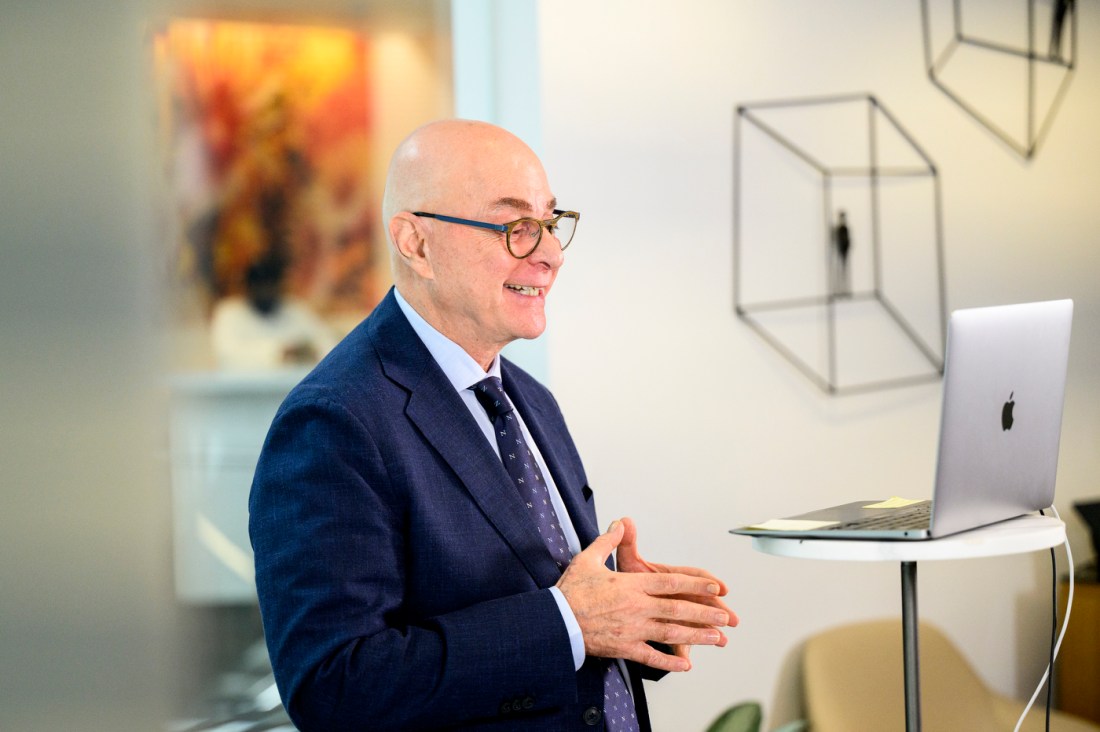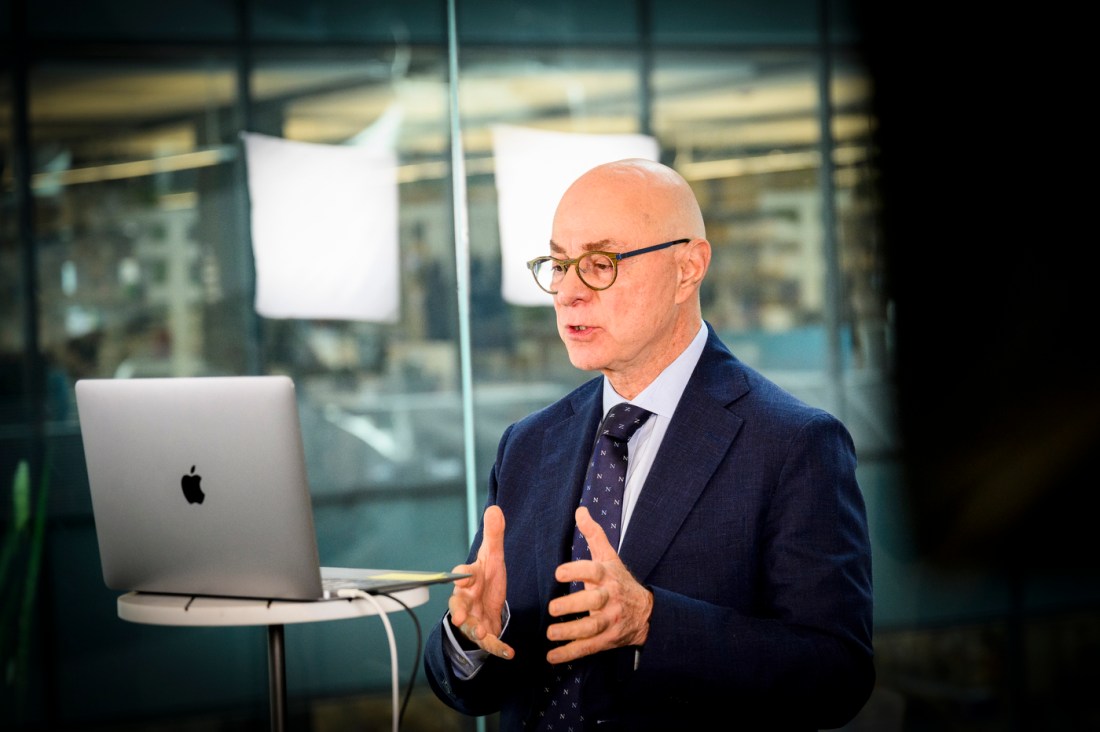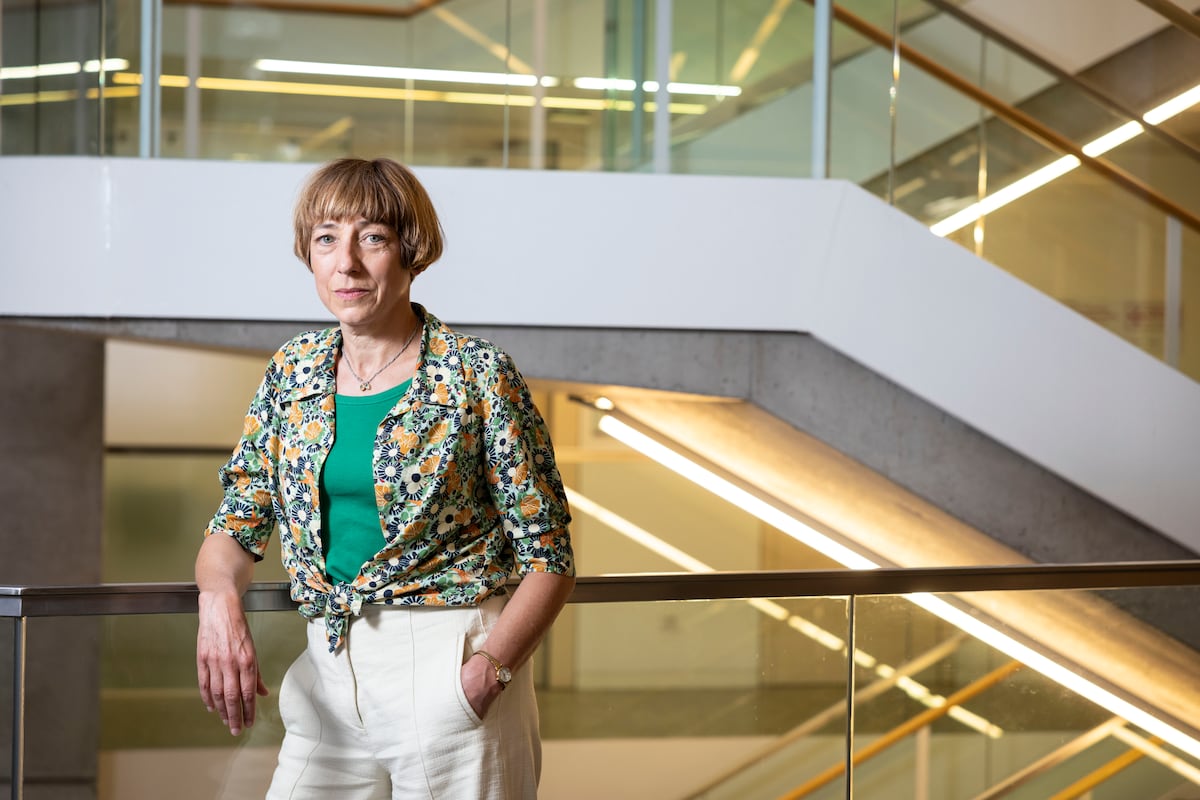Joseph E. Aoun, a graduate of Saint Joseph University in Beirut, delivered the keynote address Friday at Engineering the Future with Artificial Intelligence, an event held at his alma mater.

 Northeastern President Joseph E. Aoun speaks at the Engineering the Future with Artificial Intelligence event on Friday. Photo by Matthew Modoono/Northeastern University
Northeastern President Joseph E. Aoun speaks at the Engineering the Future with Artificial Intelligence event on Friday. Photo by Matthew Modoono/Northeastern UniversityFor years, colleges and universities have primarily focused on two areas: educating young people and research.
Northeastern University President Joseph E. Aoun said Friday that higher education needs a third focus in a world rapidly changing due to artificial intelligence — educating people for life.
And higher education must adapt or risk becoming “obsolete.”
Aoun, a graduate of Saint Joseph University in Beirut, delivered the keynote address Friday at Engineering the Future with Artificial Intelligence, an event held at his alma mater.
Speaking virtually from Northeastern’s Boston campus, he urged higher education to better serve adult learners. “If you move into lifelong learning, you have to customize the offerings to the needs of the employers and their future needs, and personalize it to the needs of the individuals, and that is something that higher education has not done so far,” said Aoun, the author of “Robot-Proof: Higher Education in the Age of Artificial Intelligence.”
 Northeastern President Joseph E. Aoun speaks at the Engineering the Future with Artificial Intelligence event at Saint Joseph University in Beirut. Photo by Matthew Modoono/Northeastern University
Northeastern President Joseph E. Aoun speaks at the Engineering the Future with Artificial Intelligence event at Saint Joseph University in Beirut. Photo by Matthew Modoono/Northeastern University“We have to rethink how we are working with adults who are short on time and want results,” he said.
Interviewed by economist and journalist Albert Kostanian before an audience that included engineers, architects, students, scholars, scientists, business leaders and policymakers, Aoun discussed the future of higher education in a world where AI is “ubiquitous.”
“The impact of AI is being felt on a daily basis everywhere,” Aoun said. “We don’t have a choice to stop it — no country by itself, no research institution, no one can stop it.”
But Aoun emphasized that AI is also “a big opportunity, because you can use it to transform society.”
Aoun stressed Northeastern’s embrace of “humanics” as key to navigating this AI-driven transformation of society.
In his book, Aoun defines humanics as the integration of three literacies: technological, data and human literacy. This approach enables students to transfer knowledge across domains and adapt to diverse challenges, Aoun said.
The humanics approach is further put into practice by emphasizing several of Northeastern’s key strengths, Aoun said.
He cited Northeastern’s experiential learning model through co-ops in 146 countries and the university’s commitment to providing lifelong learning opportunities on campuses in the United States, Canada and the United Kingdom.
He also noted Northeastern’s embrace of over 200 combined majors.
Meanwhile, as AI becomes increasingly powerful, Aoun said universities need to adapt — and quickly.
“Every university should ask itself, ‘Why do students come to us? Is it to get knowledge? I can get knowledge anytime I want now — from AI chatbots, from many things,’” Aoun said. “Students come for a different purpose — to integrate knowledge and to gain the experiential component.
“Knowledge is becoming a commodity,” Aoun continued. “But the experience is not.”









 English (US) ·
English (US) ·